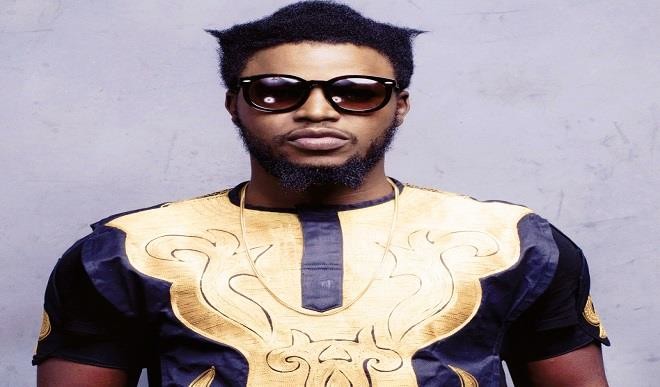Why I rap in Hausa-English combo – Morell
WM: Why did you decide to become a performer? Morell: Music has been a kind of a family thing. My family listens to music a lot. Those days, my father had vinyl records of King Sunny Ade, Micheal Jackson and many more, so I grew up listening to all kinds of music. That sparked my […]


WM: Why did you decide to become a performer?
Morell: Music has been a kind of a family thing. My family listens to music a lot. Those days, my father had vinyl records of King Sunny Ade, Micheal Jackson and many more, so I grew up listening to all kinds of music. That sparked my interested. Then in secondary school I started dancing, moving towards hip-hop and rap music. So, it happened rather organically.
WM: How did your popular Hausa-English combination rap come about?
Morell: Rapping in Hausa is very easy, as easy as talking to you right now. It is more like having a conversation. It’s not like I’m from Kano, but I know how to pick my words such that a hard-core, real Hausa man will understand.
WM: After a couple of hits, you seemed to have gone quiet. What happened?
Morell: I never went quiet. I have had very successful songs this year, like ‘Aure’ which is a hit at many Northern wedding ceremonies today. I did ‘Borno’ that has gotten me to meet certain people in my life. I also have ‘Bawoni Bugatti’ which is currently enjoying a lot of airplay. I have some hit songs out there, currently.
WM: How many songs have you written so far?
Morell: I’ve written over five hundred songs. I write for myself, and other artistes. I wrote ‘Jack Sparrow’ for Race, which was very successful, and many others. I’m mainly inspired by everything around me, including people and situations. But above all, God is my inspiration.
WM: What are you currently working on?
Morell: I’m working on a project call ‘Musa is Coming’. Musa is my real name, and that’s the album I will release early next year. It will contain all the songs I mentioned earlier, which I released this year, together with. I’m also doing stuff with M.I, Reminisce, Phyno, and many others.
WM: Do you have plans to collaborate with any international artiste?
Morell: If you ask any Nigerian artiste this question, I bet they will tell you yes. Well, I have done something already with UK-based rapper and some few other international collaborations. However, I’m looking forward to doing much more.
WM: How do you view your own approach to music?
Morell: If you are a Nigerian and you listen to my music, you will know I am from the North. If you’re not Nigerian, when you listen to my music you will know this musician is completely African.
WM: How has showbiz affected your life?
Morell: I miss doing certain things like hanging out in regular places with my friends. Although I still do that, I always have my manager telling me you can’t be seen here, you can’t do this. Like they say, talent is a gift and a curse at the same time. Sometimes there are certain things you want to enjoy but because you have this music thing going on you don’t get to do that. I try as much as possible to be myself. I don’t think my personality has changed, although fame has changed certain people around me.
WM: Did you have any problems getting your parents to accept your career choice?
Morell: It wasn’t easy, initially. I always say to younger artistes whose parents are not in support of their music career, to make them believe in their choice. You can’t simply be doing music because your friends are doing it. The passion has to be there. It is a God-given talent and as long as it is, there is always a way out.
My late father wasn’t in support, initially. He used to live in Lokoja, where he was the Deputy Commissioner of Police. I went to perform at some lounge and got home late, thinking he was asleep. When I got home, he was right there in the sitting room waiting for me. I was 14, so he flogged me. But that same night, I went to him, woke him up, and explained how much I wanted to do music. I told him I am very passionate about it. He saw reason that night. Trust me, there is nobody in this world that you can’t convince as long as you believe in what you’re doing.
That was the beginning for me. He asked me to go ahead as long as it won’t affect my studies. Though I started singing at 14, I started performing properly when I was in university. My first performance was in 2005. I came to Abuja to record some songs. They were my own songs, so when I got to school I had to show them that I had entered the studio. In fact, at some point I was the biggest artiste there. The rest, as they say, is history.
